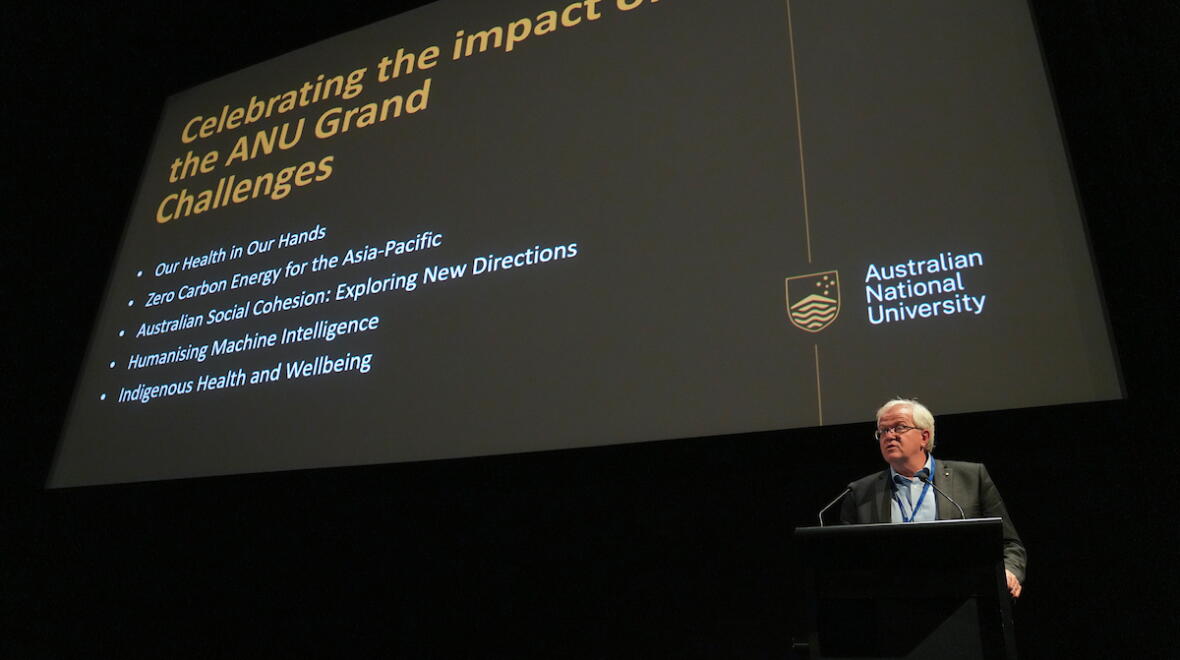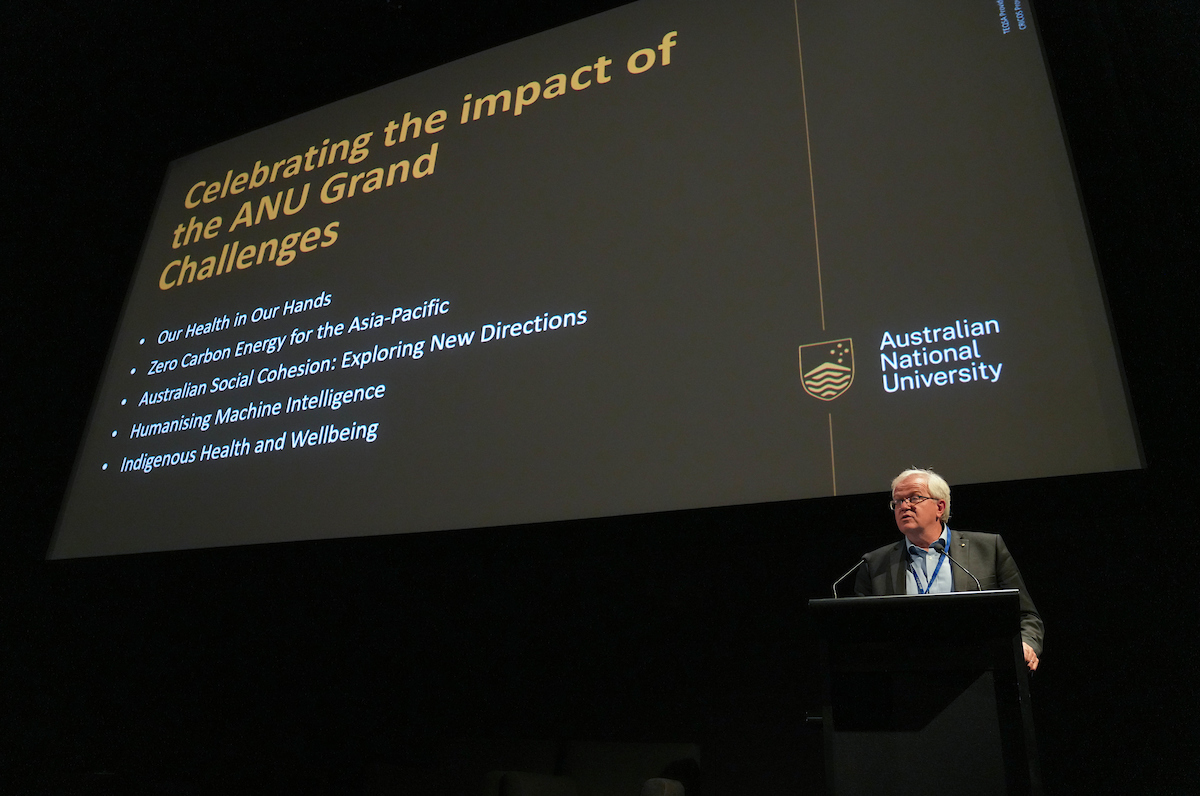Celebrating the impact of the ANU Grand Challenges
Posted on
On Wednesday 22 November, more than 150 people gathered at the National Film and Sound Archive to celebrate the achievements and legacy of the Grand Challenges, five ground-breaking transdisciplinary research initiatives The Australian National University (ANU) established to tackle the world’s biggest problems.
The afternoon, emceed by Professor Ute Roessner, began with an impactful Welcome to Country delivered by Selina Walker, a proud Ngunnawal woman, artist, and painter.
An opening speech by Former Vice Chancellor and President, Professor Brian Schmidt set the tone for an evening dedicated to acknowledging the achievements and lessons learned from these pioneering projects.
“ANU is, by Australian standards, a small university,” Professor Brian Schmidt said.
“That means we can work together. We don't fragment in the same way that a giant university does.
“We have the ability to look beyond the day-to-day and to work together to address some of the biggest problems facing the world.
“That's the spirit of why, in 2017, we introduced the Grand Challenges scheme.”
The ANU Grand Challenges stand as a testament to the University's commitment to addressing major research challenges and delivering solutions to national priorities. The innovative program aimed to foster large-scale and long-term transdisciplinary research programs, providing strategic investment in bold activities.
Unlike traditional research approaches, the scheme encouraged researchers to identify problems so significant that no single discipline could tackle them alone. This collaborative spirit brought together minds from all across the University, providing platforms and investment to enable the co-creation of new approaches to transdisciplinary problem-solving.
Professor Brian Schmidt called the creative process that drove the University as each Grand Challenge was established one of his “proudest moments as Vice Chancellor.”
The lasting impacts of the Grand Challenges extend beyond academic boundaries, reaching into society and business. With a focus on personalised medicine, artificial intelligence, energy transition, social cohesion, and Indigenous health and wellbeing, the research supported by the Grand Challenges scheme has forged new connections and had positive impacts on the lives of Australians.
At the event, representatives from each Grand Challenge took the stage to share insights into their respective initiatives, showcasing the power and potential of transdisciplinary research. Speakers included Associate Professor Anne Bruestle from Our Health in Our Hands (OHIOH), Professor Frank Jotzo from Zero-Carbon Energy for Asia-Pacific (ZCEAP), Professor Kate Reynolds from Australian Social Cohesion (ASCEND), Associate Professor Jenny L. Davis from Humanising Machine Intelligence (HMI), and Associate Professor Azure Hermes from the Indigenous Health and Wellbeing Grand Challenge.
Professor Reynolds from ASCEND lauded the bottom-up approach the Grand Challenges took and stressed the importance of dedicated leadership for transdisciplinary projects.
She stated that while transdisciplinary research may sound simple on paper, in practice, it presented real challenges.
Professor Reynold added that it was important to recognise that “one size doesn't fit all.”
“We proudly can say we raised a new generation of transdisciplinary scientists,” Associate Professor Anne Bruestle, the Executive Chair of the inaugural Grand Challenge OHIOH, described one of the long-term impacts of the Grand Challenges scheme.
She highlighted that the researchers who had obtained a PhD through their contribution to OHIOH were having a deep-seated commitment to transdisciplinary research.
“They don’t have to think about it. They just do it,” Bruestle said.
A highlight of the celebration was the performance of the Djinama Yilaga Choir, who not only shared a song integral to the Indigenous Health and Wellbeing Challenge but also presented some of their own compositions.
The evening concluded with a thought-provoking panel discussion featuring experts from all five Grand Challenges, hosted by Professor Gabriele Bammer. The panel delved into the intricacies of successful collaborative research at the University, shedding light on the challenges and triumphs encountered along the way.
As the event celebrated the Grand Challenges' success over the past six years, it underscored the University's responsibility as Australia's national institution to advance economic and public welfare. The legacy of the Grand Challenges will undoubtedly influence how ANU approaches research problems, emphasising collaboration, flexibility, and novel approaches in the pursuit of knowledge and societal betterment.
Photos: Tracey Nearmy, ANU
You may also like
ANU research creates satellite maps for emergency help
First responders would be furnished with almost-instant satellite maps of the natural disasters they are tackling thanks to a new algorithm that Australian National University (ANU) researcher…


